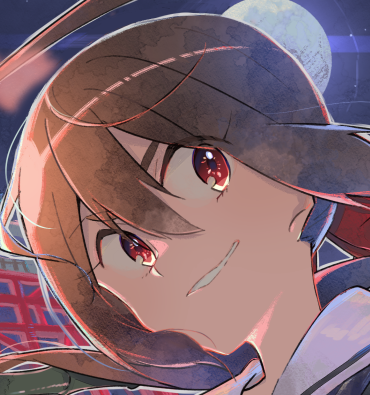I have the DVDs of The Orphans of Simitra in which the only easily-found soft subtitles are in Arabic. I thought I can get the gist of the show by reading the source material (book) first then watch the show without subs.
No amount of just passively watching anime will teach you a language, especially when you’re just reading subtitles in your own language. Your brain is not paying attention to the target language, you’re just paying attention to your native language.
To actually start learning, you need to do real study. Textbooks, lessons, spaced repetition, graded readers, etc.
Once you’ve learned a good amount of vocab and at least a little bit of grammar, you’ll have to take the plunge into immersing yourself in native content.
But here’s the catch: you will not be comfortable the first time you try to watch something without subtitles. If you keep putting this step off until you think you’re ready, you’ll never actually be ready.
The first time you start immersing, you’re barely going to pick out a few vocab words, but you’re not going to parse a full sentence, let alone follow along with the story. And it’s going to feel overwhelming and frustrating.
But that’s the grind you gotta push through. Little by little, the bits and pieces you pick out will add up. Ideally you should even be taking notes as you do it, looking up new words and making flashcards. Immersion learning is homework, and you have to really work at it. The trick is that you’re not just watching passively, you’re studying actively.
You’ll never get to a level where you’ll feel comfortable until you’ve spent a lot of time feeling uncomfortable first.
I wonder if it would help to watch content where you have already watched with subtitles. So you have a rough idea of what’s going on already and your brain has more bandwidth to process the words themselves
That is the best place to start. Also just helps you tolerate the frustration a little bit if it’s one of your favorite shows.
Yes, especially in the beginning when you have to look up multiple words every few seconds. You can’t really focus on the story with all the interruptions and you’re going to miss a lot of context that can’t just be easily translated with a dictionary so if you already know the context and the story you’ll have a much easier time.
The question wasn’t “How long until you learned the language” but instead was “How long until you can watch an episode without subtitles”. I think there’s a huge difference there. Shows that are mostly action and lack a lot of exposition will mostly have simple dialog, and you don’t need to have a grasp on sentence structure or have a huge vocabulary when you can just recognize a few key words and get a general understanding.
Well sure, if it’s just anime boys shouting murder at each other you don’t need to know much. Honestly you could probably get the gist of an episode of generic isekai slop while knowing literally no Japanese words at all. I’m not sure that’s a useful metric though.
I think a great way to learn language (past a certain initial learning step) is music, it’s usually short with repetitive phrases and people usually listen to a piece of music a lot initially before it goes into the regular playlist, which allows one to train both vocab and listening comprehension at the same time.
The problem is, music lyrics in many languages aren’t always representative of how the language is actually spoken—you can get tortured grammar or pronunciation and strange vocabulary that the artist chose to make a point—and depending on the type of music, it may be difficult to make out the words at all. That doesn’t mean it’s useless, but you have to be somewhat cautious with it.
My friend is a crazy heavy anime watcher. One time he decided to watch an anime without subtitles, and he understood soo much… Pretty much got it all. Didn’t study Japanese, just casually having nearly 300 days (7200 hours) of watch time according to MyAnimeList.
It’s cool and all, but there are MUCH better and faster ways to learn Japanese than spending 2 years non-stop watching anime to reach his kind of level
I’ve watched anime for decades at this point, but nope. I can pick out words here and there, but it would severely limit my enjoyment of anime. Subtitles allow my brain to skip most of the hard work when it comes to learning a language, I don’t believe it will get better even if this goes on for another decade.
I also feel if I suffered through a couple of months of non-subtitled watching and put in the effort to process, understand and memorize what I’m hearing, it might eventually get better. But as long as I have access to subtitles, I don’t do any of that…
I watched anime a lot in my youth and young adulthood, and found that after about 10 years of daily watching I could easily pick up a new show and understand the gist of what was going on. Complex words or exposition tripped me up, though. Nowadays I rarely watch anime but I’ve been studying Japanese daily on Duolingo for 4 years, and sometimes I’ll turn on a Japanese show as practice to try to recognize as many words as I can. It’s a totally different beast - Now I actually understand the nuances of sentence structure and have a much larger vocabulary, instead of just knowing a few key words. It’s a fun exercise.
As someone who actually did learn Japanese through watching anime, it took me about 3 years. I started watching anime regularly in 2018 and when I was watching Hori-san to Miyamura-kun in 2021, the last two episodes had not been subtitled, so I watched them raw and mostly understood it.
A lot of people will say that it’s impossible to learn just via watching anime, but have not actually tried it. Yes, if you have subtitles on, it’s easy to let yourself totally ignore the Japanese. But it’s not impossible, and if you are focused, you can still learn even with subs turned on.
Later on, I started taking classes in Japanese at college and started learning a lot more. But just knowledge from watching anime was enough to pass an oral placement test and skip the first 2 semesters. If you are serious about learning Japanese, I recommend taking classes or studying it seriously online. There’s also better input resources than anime such as streamers or even conversation analysis audio for linguistics research.
But I am convinced that anime is still a very good tool because many people like anime and are already very motivated to watch it. This is a very big strength because the biggest obstacle to learning language is giving up. This, combined with Japanese’s very very simple grammar and verb conjugations actually makes it a very easy language to learn, imo.
Probably due to immersive learning?







